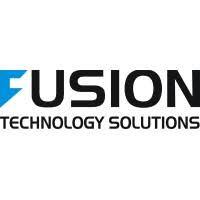Blog Information
- Posted By : kajal Dongare
- Posted On : Jul 10, 2024
- Views : 52
- Category : Education
- Description : Practical Training: Students engage in hands-on training through case studies, simulations, and real-world projects, enhancing their practical skills.
Overview
Pharmacovigilance, the science of detecting, assessing, understanding, and preventing adverse effects or other drug-related problems, is not just a field, but a crucial pillar of the pharmaceutical industry. With the increasing need for drug safety, the demand for skilled pharmacovigilance professionals is on the rise. For those looking to break into this field, enrolling in a pharmacovigilance training program with placement assistance can be a game-changer. Here’s what you need to know about these courses, particularly those offered by pharmacovigilance training institutes in Pune.
Understanding Pharmacovigilance
Pharmacovigilance involves a comprehensive range of activities, a vast landscape that includes monitoring drugs once they are released into the market, reporting adverse drug reactions (ADRs), and ensuring the safety of patients. Experts in this department play a vital role in strengthening public health by ensuring that medications are safe and effective.
Why Choose Pharmacovigilance Courses?
Enrolling in pharmacovigilance courses offers several advantages:
Specialized Knowledge: These courses provide in-depth knowledge about drug safety, regulatory guidelines, and the processes involved in monitoring and reporting ADRs.
Skill Development: Students acquire essential skills such as data analysis, risk assessment, and communication, which are critical for a career in pharmacovigilance.
Industry Demand: The pharmaceutical industry needs qualified pharmacovigilance professionals to manage drug safety, making it a promising career path.
Features of a Good Pharmacovigilance Training Program
When selecting a pharmacovigilance training program, it’s essential to consider several key features:
Comprehensive Curriculum: A robust pharmacovigilance training program should cover all aspects of drug safety, including regulatory requirements, case processing, signal detection, and risk management.
Experienced Faculty: Learning from industry experts who bring practical insights and real-world experience is invaluable.
Hands-on Training: Practical experience through simulations, case studies, and internships helps students apply their knowledge in real-world scenarios.
Placement Assistance: Programs that offer placement assistance provide a significant advantage by assisting students in securing employment after completing the course.
Pharmacovigilance Courses with 100% Placement in Pune
Pune, a pharmaceutical and clinical research hub, is home to several reputable institutes offering pharmacovigilance courses with placement assistance. One such institute is Fusion Technology Solutions, which is known for its comprehensive training programs and strong industry connections.
Fusion Technology Solutions: Leading the Way in Pharmacovigilance Training
Fusion Technology Solutions in Pune offers a pharmacovigilance training program to equip students with the skills and knowledge needed to excel in the field. Here’s what sets their program apart:
Industry-Aligned Curriculum: The course covers critical areas such as regulatory affairs, clinical trial phases, ADR reporting, signal detection, and more, ensuring students are well-prepared for industry challenges.
Expert Faculty: This program is taught by skilled professionals who bring an ocean of knowledge and practical experience to the classroom.
Practical Training: Students engage in hands-on training through case studies, simulations, and real-world projects, enhancing their practical skills.
Placement Assistance: Fusion Technology Solutions offers robust placement support, helping students secure positions in reputable pharmaceutical companies and CROs (Contract Research Organizations).
What to Expect from a Pharmacovigilance Training Program
Enrolling in a pharmacovigilance training program involves several stages, each designed to build your expertise and prepare you for a successful career. The study period can differ, commonly varying from a few months to a year, depending on the institute and the depth of the curriculum.
Foundational Knowledge
The initial phase of the program focuses on building a solid foundation in pharmacovigilance. Topics covered include:
Introduction to Pharmacovigilance: Understanding the basics of drug safety and the crucial role of pharmacovigilance in healthcare. Pharmacovigilance is not just about ensuring the safety of individual patients but also about contributing to the overall public health by identifying and preventing potential risks associated with medications. Regulatory Framework: Learning about the regulatory bodies and guidelines governing pharmacovigilance, such as the FDA, EMA, and CDSCO.
Drug Development Process: Gaining insights into the phases of clinical trials and the drug approval process.
Advanced Topics
As the course progresses, students delve into more advanced topics, such as:
Adverse Drug Reactions (ADRs): Identifying, assessing, and reporting ADRs.
Signal Detection and Risk Management: Techniques for detecting safety signals, such as data mining and statistical analysis, and managing risks associated with drug use, including risk assessment and risk minimization strategies. Case Processing and Reporting: Understanding the process of handling individual case safety reports (ICSRs) and preparing regulatory reports.
Practical Training
Hands-on exercise is the most necessary element of any pharmacovigilance course. This includes:
Case Studies and Simulations: Working on real-world case studies and simulations to apply theoretical knowledge.
Internships: Gaining hands-on experience through internships with pharmaceutical companies or CROs.
Project Work: Completing projects that involve real-world pharmacovigilance activities, such as risk assessments and signal detection.
Placement Assistance: Bridging the Gap to Employment
One of the most significant advantages of enrolling in pharmacovigilance courses with placement assistance is the support provided in securing employment. Here’s how placement assistance can benefit you:
Resume Building and Interview Preparation: Programs often include sessions on crafting effective resumes and preparing for job interviews.
Job Placement Support: Institutes with solid industry connections can arrange interviews with leading pharmaceutical companies and CROs.
Career Counselling: Our career support and counselling can help students steer their career paths and achieve their desired goals in the industry.
Conclusion
Pharmacovigilance courses with placement assistance offer a comprehensive pathway to a successful career in drug safety. By providing specialized knowledge, practical training, and robust placement support, these programs ensure that students are well-equipped to meet the demands of the industry. Institutes like Fusion Technology Solutions in Pune stand out for their industry-aligned curriculum, experienced faculty, and vital placement assistance, making them an excellent choice for aspiring pharmacovigilance professionals. Whether you are a recent graduate or a working professional looking to switch careers, enrolling in a pharmacovigilance training program can be an addon certifications for your academics.
